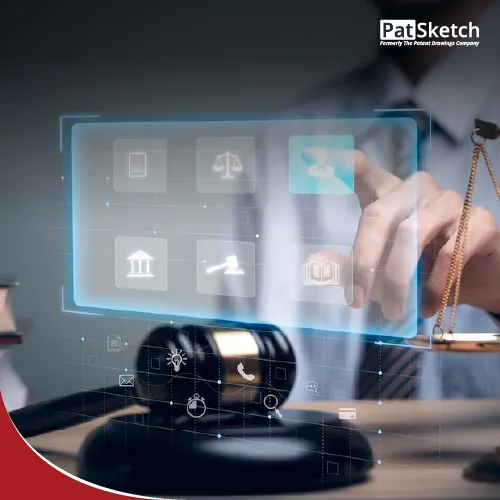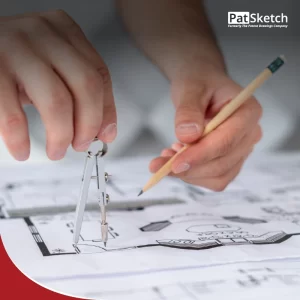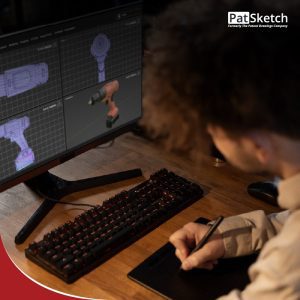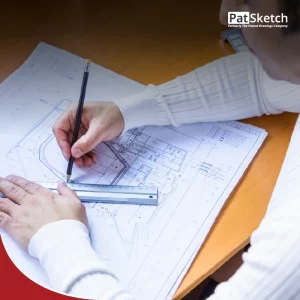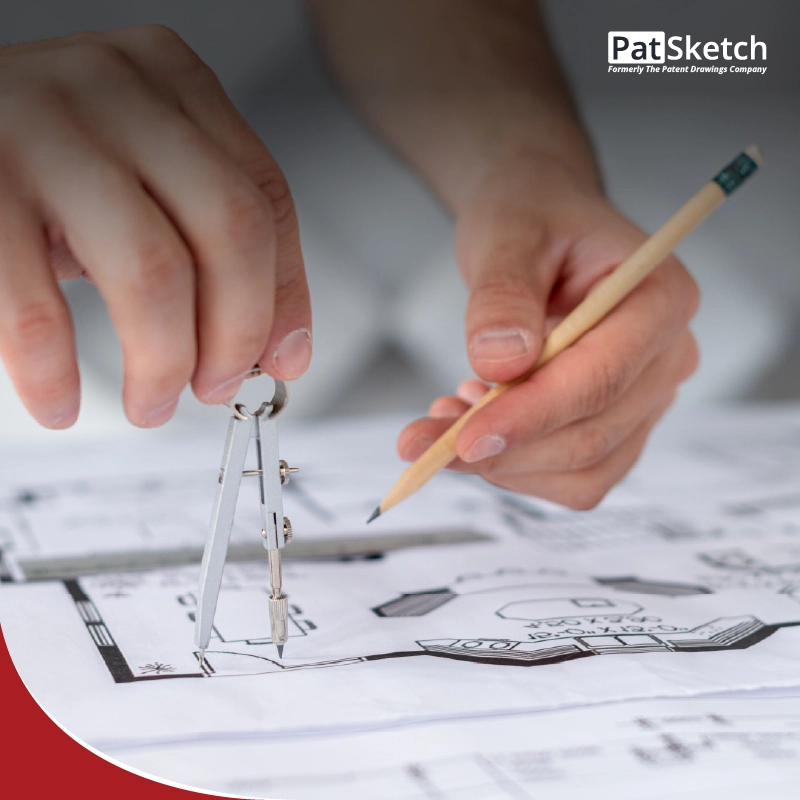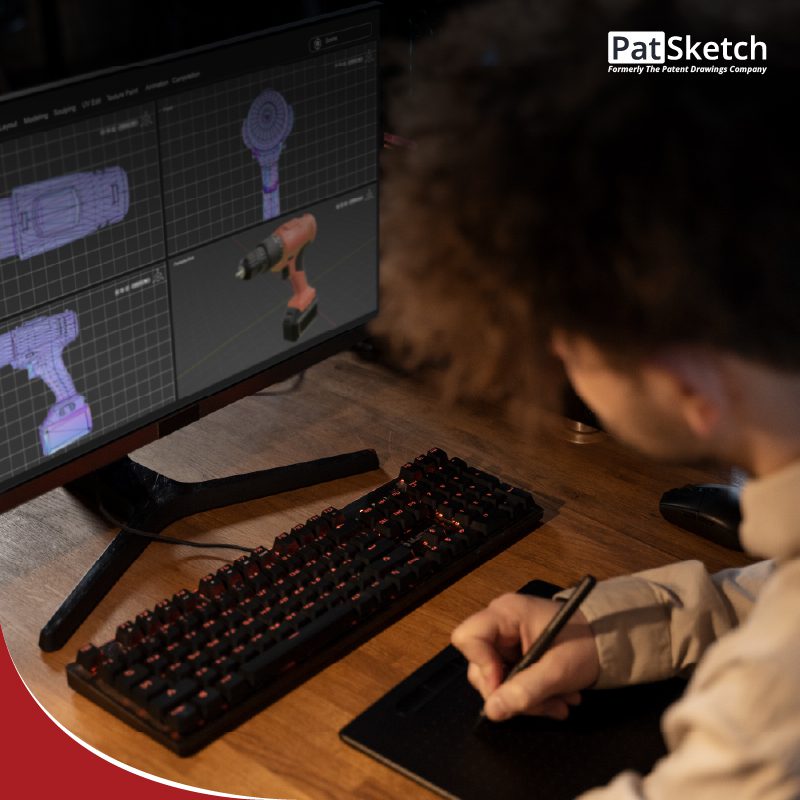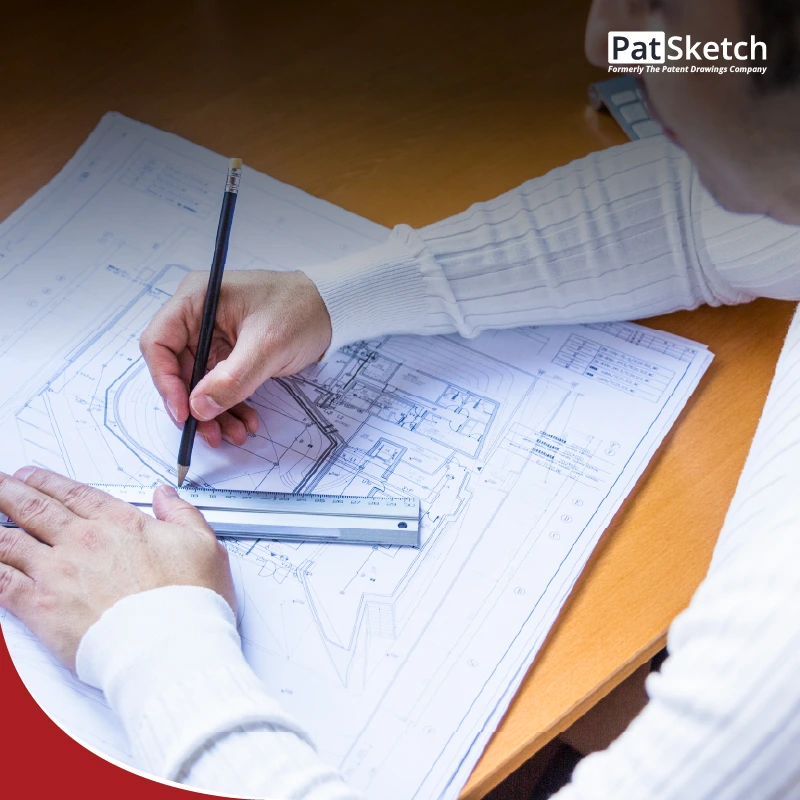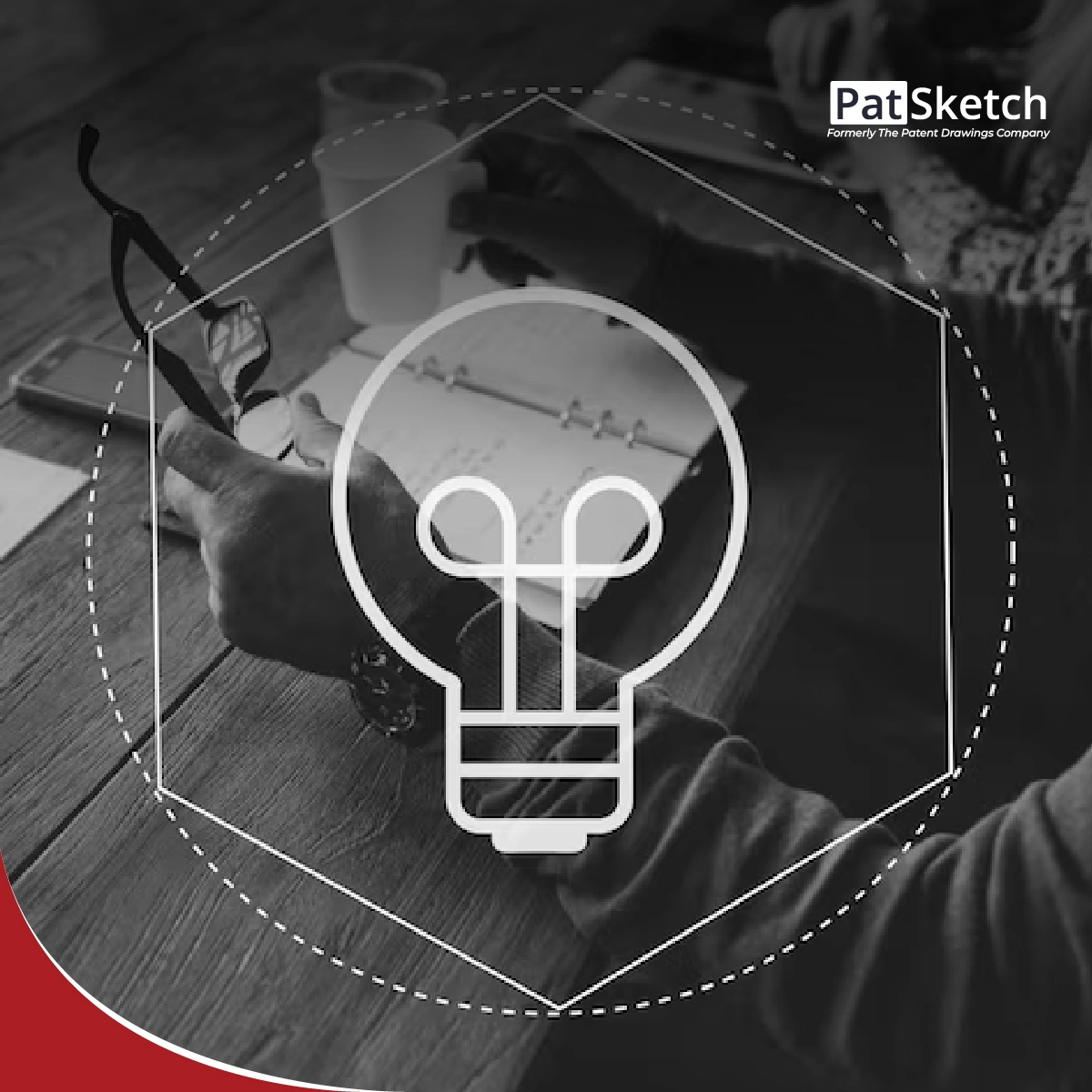The use of patent drawings in artificial intelligence is becoming widespread. Businesses are gradually realizing the significance of AI patents. During the patenting process, illustrations play a crucial role in mitigating the risk of rejection. This is because drawings facilitate a better understanding of an invention. Therefore, this article talks about a variety of methods for the use of patent drawings in artificial intelligence. Further, these points will also help us fulfill the technical requirements for AI patents.
Also Read: Prepare Cost-effective Patent Drawings Accepted Across Countries
What is Artificial Intelligence?
The term artificial intelligence was coined in 1956 by scientist McCarthy, famously known as the father of AI. Artificial Intelligence can range from smart machines to self-learning software applications. This emulates human traits such as rational decision-making and problem-solving approach. The technology is also making inroads in the intellectual property ecosystem. This is where the use of patent drawings in artificial intelligence is playing a critical role in patent representation.
Increasing Importance of AI Patents
Since the emergence of AI, patent applications for nearly 340,000 patents have been filed. Multiple sectors are exploring methods to harness the capability of the sector to exploit it commercially. Therefore, patenting AI innovation is becoming popular in line with the rapid pace of AI innovation. Machine learning is a dominant AI technique and forms a part of almost 40 percent of the AI patents.
Artificial Intelligence and IP Laws
Intellectual property laws are legislations that safeguard the products of human intelligence. They do so by conferring rights upon the innovators to have exclusive control over the commercial exploitation of their creation.
The fundamental goal of the IP laws is to protect and encourage innovation through new technologies and creative works. Not only this, but it also includes innovations by humans as well as AI.
Also Read: How to Enhance Creativity of Design Patent Drawings
Use of Patent Drawings in Artificial Intelligence Patents
An impressive patent illustration can convince an examiner and smoothen the patent registration process. As per the patent law, it is mandatory to display drawings in patent applications for better understanding. Here’s how patent drawings fulfill technical requirements for AI patents.
Images Are Not Substitute For Drawings
You can submit color drawings to the USPTO with the application. Further, you can upload the patent applications electronically to the USPTO, allowing for color filings. Though taking photographs/images of an AI invention rather than recreating it saves time, photographs/direct images are not a substitute for AI patent drawings. Photos are rarely applicable for applications in which you cannot illustrate the invention through an ink drawing or in cases where the invention is clearer in a photograph.
Drawings Help Overcome Obstacles
Detailed graphical and digital black and white drawings are worth a thousand words because if one accidentally leaves something out of the written disclosure, a drawing becomes a life-saver eventually. However, this can happen only if the drawing contains all the details that are enough to convey information about the invention. It’s the detail of the patent drawing that saves the day. Therefore, you must depend on a professional patent illustrator for this job. The benefit of a professional AI patent illustration is worth the investment.
Related Article: How Patent Illustrators Help You in Saving Time, Money and Effort?
How AI Assists Patent Drawings
Helps in Search and Analytics
With businesses eyeing possibilities of intellectual property in the AI sector, critical insights and analysis are utterly valuable in filing a successful patent. It is essential to realize the patent data analyzing process while discussing patent analytics and IP analytics. This article presents an approach for automatically extracting concept information describing the patent image content to support search during patent retrieval tasks.
This approach is based on a supervised machine learning framework, which relies upon image and text analysis techniques. It analyzes and extracts textual and visual mid-level features from patent drawings and detects the faults/mistakes, which are capable of identifying global concepts in patent drawings.
Detailed Patent Illustrations
An ambiguous illustration can undermine a patent application. AI allows computers to comprehend and interpret the visual world to support patent drawings. IP firms are actively deploying AI and machine learning technology as it enables patent illustrators to draw with higher aesthetics and clarity. However, it is important to ensure that patent drawings comply with the patent office specifications.
Computer Vision Technology
Companies are gradually integrating patent drawing with computer vision technology – a branch of AI that enables computers to understand and relate to visual images. By utilizing videos and images captured in digital cameras, computer vision allows machines to identify, classify and relate to the image. Computer vision technology establishes the distinctiveness of a design faster in a target market.
Also Read: Invention Drawings: Why Do You Need Them?
Challenges in Artificial Intelligence (AI) and Machine Learning (ML) based Patent Illustrations
Widespread Use of ML
Numerous people are currently running ML on Amazon Web Services (AWS) products, which enables a developer to discover patterns via algorithms, construct mathematical models based on these patterns, and implement guessing applications.
Machine Learning Algorithm
The first challenge for machine learning algorithms is whether it can understand the invention to support patent drawings. This limitation is related to the understanding of machine learning within the architecture field. This completes the training of the conclusion of a neural network to read inventions while forming an automated labeling application.
Splitting the patent specification into multiple segments that correspond to the utmost elements of the AI/ML-based invention can categorize the disclosure and may aid each novel.
Illustrating Claim Term
Patent drawings can help in illustrating each claim term in a diagrammatic or a method flowchart. The drawings should be assembled & illustrated so that another patent professional can identify the patents by simply conducting a brief search on the drawings.
Overcoming Challenges of AI/ML-Based Patent Illustration
Text-to-Picture
These algorithms automatically generate pictures from natural language sentences so that the picture conveys the exact meaning of the text. Thereafter, algorithms generate static or animated pictures that represent important objects and actions for the general text. Further, the software helps in the identification of inconsistencies between text and image labels during the process of patent drafting.
Sensitive Hearable Technology
This technology uses artificial intelligence to determine whether to change the volume or noise cancellation system. Further, the patent allows earbuds to identify a wearer’s location and what’s going on around them to determine if the audio settings need to be adjusted.
Related Article: Importance of a Best Patent Drawing Software
Final Thoughts
AI simplifies day-to-day tasks in the IP sector. It protects technology and provides a competitive advantage in the market. Patent drawings help in overcoming abstraction rejection by providing technical details and showing practical applications. At the same time, the use of patent drawings in artificial intelligence makes it more efficient and detailed.
PatSketch realizes the importance of illustrations for AI patents and offers patent drawing services to its valuable clients. Our expert illustration team offers drawings that are drafted keeping in mind the rules of the Patent Trademark Office (PTO) concerned. Our team can assist you with utility and design patent drawings. Feel free to reach out to us with any questions.
– Kalyani & John Britto (Illustration) and the Editorial Team

